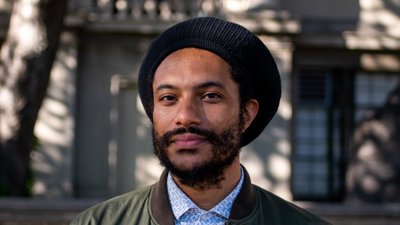
Dr Jovan Scott Lewis has been awarded the Gill Memorial Award, for exceptional early career research with a remarkable track record of achievement. We spoke to Jovan about his proudest career moments to date and how geography has shaped his career.
What are you most proud of in your career to date?
I am most proud of the work that I have done in shaping the future trajectory of my department through Black Geographies. Black Geographies’ promise is that it allows not only the centering of previously marginalised subjects, processes and contexts, but critically offers new vantages from which we can ask the critical questions that only geography can ask. The result is a more representative discipline that is truly more comprehensive, informed and rigorous. And so, through attendance to Black Geographies as a critical epistemological shift, Berkeley Geography has become more impactful and agile in research and teaching. It has brought more thinkers, their ideas, and thus their interventions to bear on geographic analysis.
How has geography shaped your career?
As a Caribbeanist, geography is ever present in identifying and ultimately analysing various phenomena in the region. Caribbean people (though not exclusively) live their geographies in a way that cannot be denied and must be taken seriously. From a professional standpoint, geography has helped to make the kinds of structural questions that often get overlooked in Caribbean and Black Studies more recognisable and legible. For instance, the role of the political economy in creating the conditions of Black life in the Caribbean might be seen as secondary to the cultural production of those individuals. However, geography doesn’t allow those processes to fall out of relation to each other. It requires that we understand the whole experience and means, both affective and material, by which that experience is produced.
How do you think geography will evolve in the future?
While it’s a cliché, most of the current issues facing the world are geographic. Geography is evolving to better and more directly address those issues. The everyday relevance of the discipline is unparalleled, to my mind, but we need to become better at articulating that point. There are movements in the discipline where scholars and activists are trying to figure out what intellectual and technological tools are needed to do geography better. I see this as the primary impetus for the discipline’s evolution. Commitments are evolving, and the frameworks we draw for, and are drawn to, are also. I sense that we are headed toward significant innovation in understanding the world and a necessary recalibration of how we see our role in shaping it.
What advice would you give to someone wanting to go into a career in this field?
The one piece of advice that I would give is to know your questions and believe in them.
